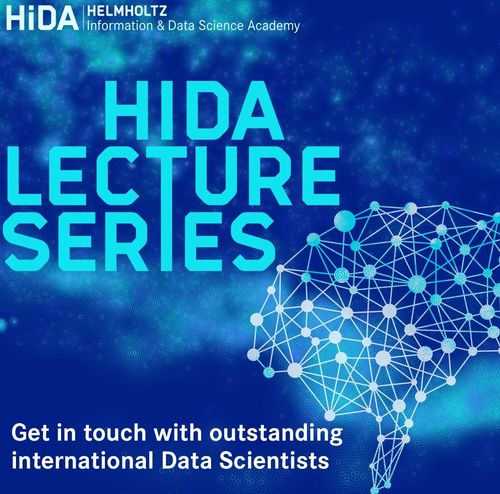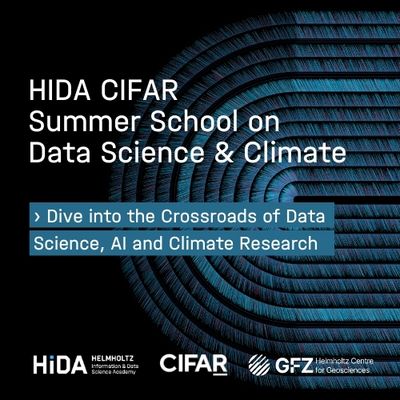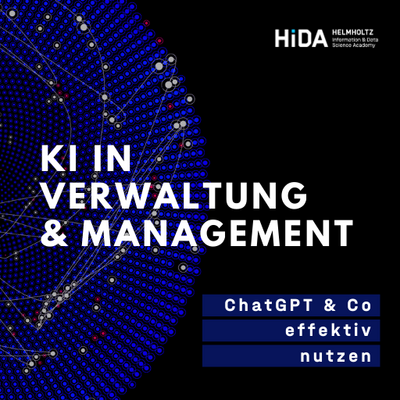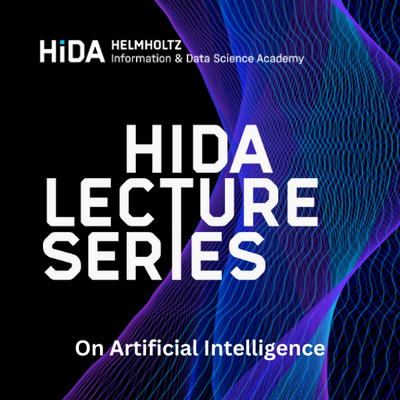Helmholtz Information & Data Science Academy Lectures
The HIDA Lectures are a series of events organized by HIDA together with the six Helmholtz Information & Data Science Schools. Throughout the year, the Data Science Schools invite outstanding international Data Scientists to speak about their current research.
As the Schools represent all Helmholtz research areas - Energy; Earth and Environment; Health; Information; Matter; and Aeronautics, Space and Transport - the series will reflect a wide range of topics and offers a great opportunity to dive into the diversity of current approaches in Data Science.
We cordially invite the interested public and especially PhD students of the Helmholtz Association. Here, they will gain insight into the diverse activities of the Schools and HIDA, but above all, they will be able to discuss different application fields of Data Science with international researchers.
All events in the series are open to the public.
The host of the first HIDA Lecture is the "Data Science in Hamburg - Helmholtz Graduate School for the Structure of Matter" DASHH.
On April 15 at 2 pm, Anatole von Lilienfeld will take the virtual stage as our first speaker in the series.
HIDA Lectures @ DASHH
Anatole von Lilienfeld is Professor of Computational Materials Discovery at the University of Vienna. His research focus is highly interdisciplinary and uses physical, mathematical and computational sciences for the quantum mechanical exploration of chemical space. His topic at the HIDA Lectures @ DASHH:
"Quantum Machine Learning in Chemical Compound Space"
Abstract: Many of the most important observables of matter depend explicitly on atomistic and electronic details. This makes a first-principles approach to computational material design imperative. Unfortunately, brute-force high-throughput screening of candidate materials is not possible for all but the simplest systems and properties due to the combinatorial nature of the interconnect space, i.e., all possible combinations of compositional and structural degrees of freedom. Consequently, efficient exploration algorithms exploit implicit redundancies and correlations. I will discuss recently developed statistical learning-based approaches to interpolating quantum mechanical observables throughout the composite space. Numerical results show promising performance in terms of efficiency, accuracy, scalability, and transferability.
More information at DASHH.
You want to see Anatole von Lilienfeld's lecture again?







